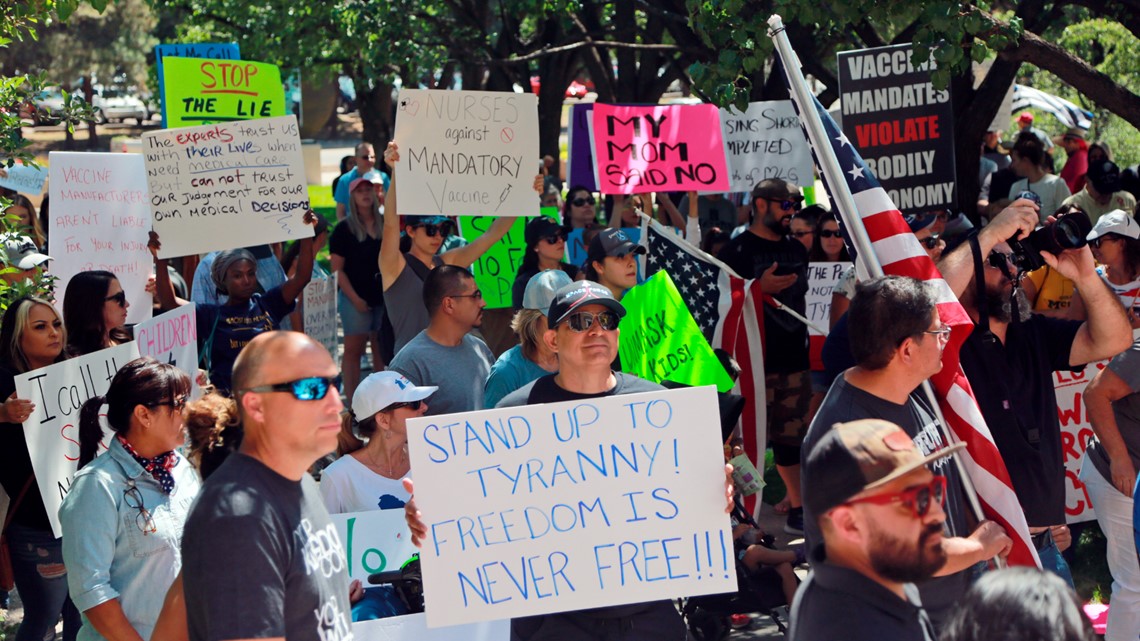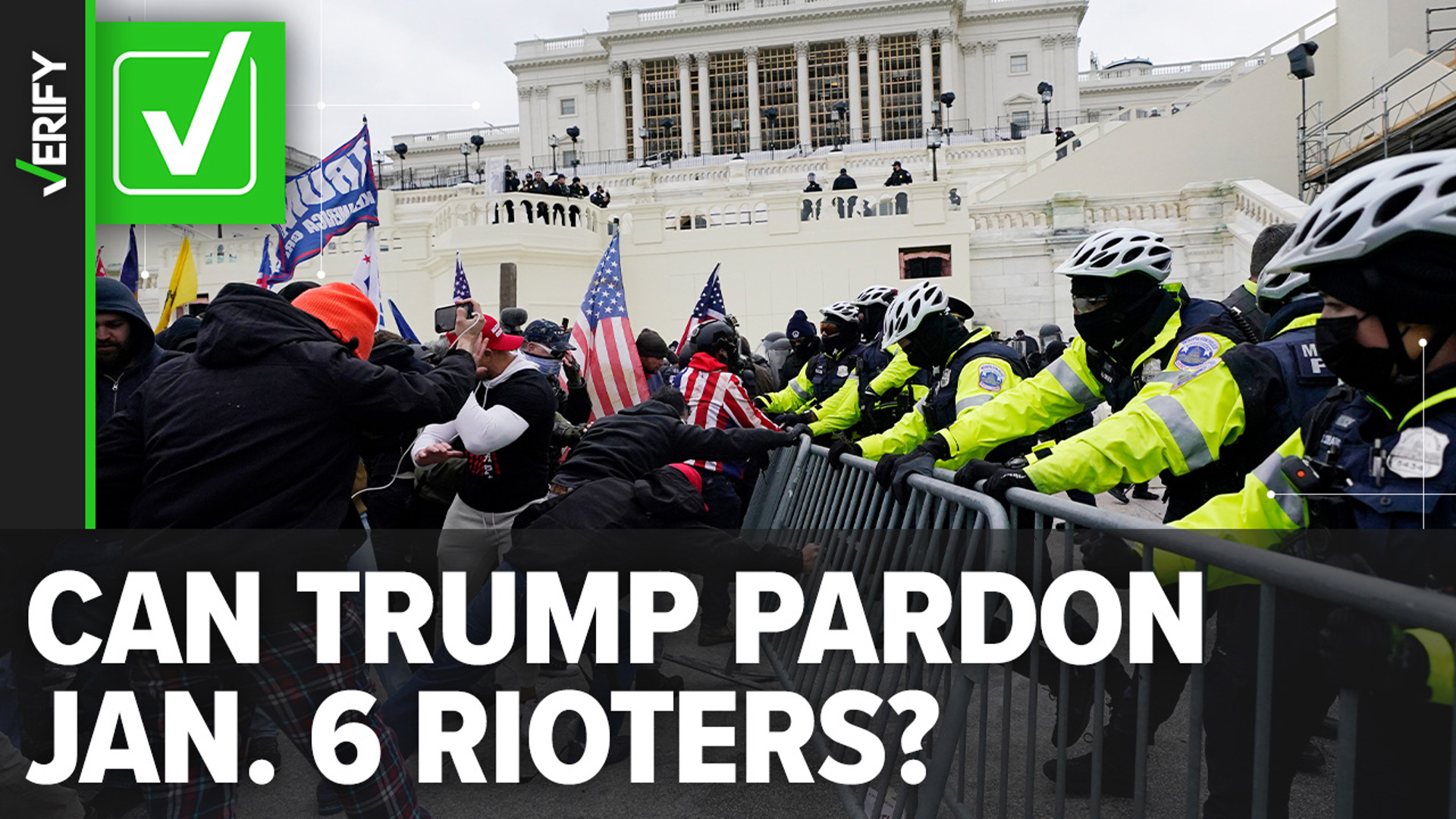WASHINGTON D.C., DC — Currently 51.7% of the U.S. and 60.5% of those ages 12 and up are fully vaccinated against coronavirus. But even with a majority of Americans voluntarily getting vaccinated, not everyone is on board with requiring them in society.
COVID-19 vaccination policies, otherwise known as "vaccine mandates" on social media, have become politically polarized. From New York to New Mexico, some people are protesting these compulsory COVID vaccinations.
Such requirements are already happening at the federal level.
On July 26, the Secretary of the Department of Veterans Affairs announced mandatory vaccinations for agency healthcare staff, including nurses, doctors and dentists.
In early August the Pentagon announced plans for all U.S. troops to get vaccinated. Secretary of Defense Lloyd J. Austin III officially directed senior Pentagon leadership to implement the plan in a memo sent August 24.
RELATED: VERIFY: Yes, military service members who refuse COVID vaccine could be removed from service
On August 18 President Joe Biden said that all nursing home staff that treat patients on Medicare or Medicaid will be required to get the COVID shot.
It's happening on a local level, too. New York City Mayor Bill de Blasio announced August 23 that teachers in the city must show "proof of first dose of vaccination by September 27th."
The U.S. Secretary of Education congratulated the decision in a tweet writing, "The best way for students to get back to school in-person, play sports & develop strong relationships with peers & educators--is for as many people in the school community as possible to be vaccinated against COVID-19. Appreciate the leadership of @NYCSchools here."
THE QUESTION
Can public schools require vaccines for their staff and students? Can local governments mandate them?
OUR SOURCES
- Nick Woodfield, principal and general counsel at Employment Law Group
- Lawrence Gostin, professor of global health law at Georgetown Law
THE ANSWER
Employees can legally be required. It's unclear whether the general public or students in public schools can be required.
WHAT WE FOUND
Our experts say that the answer is yes, a school can require its teachers to get vaccinated or face termination, and the same goes for local government workers.
"At this point, it looks like yes," Nick Woodfield said. "But the the issue frequently is not just the legality of it, but it's whether you want to deal with the personnel implications of dropping a requirement on someone as opposed to trying to coax them into it."
Lawrence Gostin, a global health law professor at Georgetown University, agreed.
"A government can certainly require its workers to be vaccinated—that's already happening," Gostin said. "It's happened in New York, California, the federal government, and it's perfectly lawful."
The same goes for school staff.


"You can have a mandate saying everyone has to provide proof of vaccination or you need to have some exception that is accepted by the by the school system," Woodfield said.
Woodfield says those exceptions can be for medical reasons or legitimate religious beliefs.
So we can verify, yes, public schools and governments can require most staff members to get the vaccine or risk being fired. But things get more complicated when it comes to vaccine requirements for the general public and students.
“States certainly have the right to compel vaccinations, and they have for over 100 years, and it's been upheld by the Supreme Court twice," Gostin said. "And so, clearly, you can do that, but states would want to and maybe have to wait until full approval of the FDA.”
As of writing, only the Pfizer vaccine, dubbed "Comirnaty" has full FDA approval for those ages 16 and up.
Gostin says that FDA approval for children opens the door for government and school vaccine mandates, but its unlikely to happen soon, if at all.
"We're not going to be seeing governments requiring vaccination of their entire population, that's not happening anytime soon, maybe never," Gostin said. "Governments are also not likely to require vaccination for children, at least for the next year or so."



